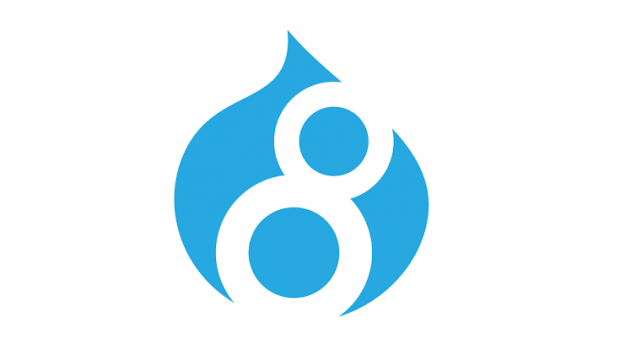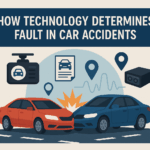Top 9 Tips to start your Drupal 8 project right
Drupal project management is not about the extraordinary project tools and modules accessible. It’s about the group and how it’s managed. The goal of Drupal project managed, alongside the team’s, is to bring the extent of a Drupal project to consummation. This should be done while keeping the project on schedule and its budget; that is the name of the game. As developers in Drupal development company, we sometimes overlook that we live in a tech bubble. In our profoundly technical world we accept things that not every person sees.
For instance, there are still reasons that customers frequently refer to legitimize remaining in an old version of Drupal, for this situation Drupal 7, rather than beginning another project straight away in Drupal 8. This is genuine in any event, when we are looking at beginning a brand new project (rather than simply migrating). More often than not these reasons are business-related, or politically-related reasons – not technical. Also, the issue is that without having the correct technical foundation, these reasons frequently cause customers to think little of the effects and advantages that are accomplished by settling on the correct decision dependent on the technology.
Tips to start your Drupal project 8 right
Innovation
Being in Drupal 8 methods grasping innovation itself. Obviously, there are sparkly new features in Drupal 8 that are not accessible in Drupal 7. This isn’t remarkable to Drupal. In any new programming release there are new features that were absent in the past iterations, and these new features should improve various parts of the product, from client experience to article experience to development experience, just to give some examples.
In any case, returning to Drupal 8, there is another significant motivation to begin a new project (or update any current project) in Drupal 8: the new release procedure that was launched with Drupal 8. This implies we can anticipate not simply enormous changes, when moving starting with one significant version then onto the next (that is, from 6 to 7, from 7 to 8, or from Drupal 8 to Drupal 9 at whatever point that occurs). Since Drupal 8, the new release procedure permits Drupal to present significant features in the present release, which as I would like to think is a game changer, and not only for developers.
Efforts and cost
If you think about that Drupal 7 End Of Life is just around the bend, perhaps around 2021, beginning another project in Drupal 7 can bring about a dishonorable method to underutilize your resources. This implies that whatever you are doing in Drupal 7, it should be changed at whatever point Drupal 7 gets deplored and comes up short on grace. In Open Source we regularly disregard the expenses of running projects, since licenses are non-existent or odd to have. Yet, there is an expense of maintenance that can’t be overlooked.
Drupal 8’s new release cycle may increment, at times, short-term maintenance. That is, we may need to update the site all the more regularly, including increasingly continuous release updates. In any case, the guarantee is that those new minor releases technique should get moderately simpler and effortless as the new stage develops, and in return they will give a more beneficial/cleaner codebase. Long term maintenance avoids the enormous expense of migrating from a significant version to another, for example, from Drupal 6 to Drupal 7, or Drupal 7 to Drupal 8. Since the launch of Drupal 8, migrating to new significant releases isn’t that troublesome any longer.
Security
Truly, all releases are secured, and enormous security issues have given fixes even to Drupal 6, yet know that the focal point of the community endeavors is with Drupal 8. Drupal 8 has all the consideration now, all the community is centered around improving it, making it quicker, increasingly secure, and simpler to utilize. Keep in mind that major new security issues are ordinarily found in the present stable version, Drupal 8 for this situation, and if they are extremely basic, they get backported to Drupal 7.
User experience
If you care about your clients, you should make the transition to Drupal 8. I am discussing the two clients: final clients influenced legitimately by the frontend that you are building, and administrator clients as well. For a beginning, Drupal 8 has been from the very first moment concentrated on the client experience, bringing activities like mobile first to the front lines. While, it’s not just about the end client. Site builders and publication teams generally assume a colossally significant job in our ecosystem, and we can perceive how their experiences are beginning to be organized with activities like administrator UI and JS activity. If you are intrigued to comprehend what is descending the street in Drupal 8, this repository is an extremely fascinating spot to begin.
Training
Remember that there are two principal actors playing here: the developers on the one hand, yet additionally the site builders or the clients who will be accountable for regulating the site.
Developers: Who doesn’t love the most recent gleaming thing? The most elevated trouble in moving to Drupal was the high measure of what has been named as Drupalisms, which regularly made the progress harder, with the propensity of isolating those developers on the “Drupal island”. Drupal 8 has taken a way of an increasingly traditional and standardized design, with Symfony packages in the core, yet in addition with the modules adopting an Object Oriented strategy. That implies that developers quit discussing hooks, and rather talk about events, or about expanding objects, and so on.
From the perspective of site builder, while Drupal 8 has a commonplace interface and permits simple transition, there are continuous activities that give significant ease of use upgrades and refinements.
Recruiting and staff retention
As we have just referenced, Drupal is less Drupal-driven now, with more work imparted to different communities like Symfony. Simultaneously, developers would prefer not to stall out in a solitary innovation stack. If you keep them in that equivalent stack for a really long time, they’ll leave or – what is more terrible for your organization – they will remain. Both are terrible as they can prompt complacency, and an inclination not to look into past the issues quickly ahead, causing things like stagnation and absence of technology. Furthermore, shouldn’t something be said about developers? The experience has drastically improved for them as well. It is currently a lot more straightforward to achieve both simple and out-of-the-crate tasks like building artifacts for arrangement, and furthermore building tests, discovering regressions quicker, and so on.
Performance
At whatever point another version of Drupal is delivered you will peruse huge amounts of articles saying that the new version is more slow than the past one. Drupal 8 versus Drupal 7 isn’t absolve from this, however not being cautious with the examination is simply missing the master plan. Drupal 8 has much greater usefulness incorporated into its core. This doesn’t imply that the core is more overwhelming, it just implies that 96% of the sites in Drupal 7 were conveyed with modules that currently are incorporated into Drupal 8. Furthermore, that is the place where the issue lies: correlations don’t ordinarily think about that reality, and they do exclude basic Drupal 7 modules that are excluded on those presentation estimations and consequently, they wind up looking at changed impressions.
Make easy transition to next big version
This is something a Drupal development company do to keep away from enormous migration costs at regular intervals, and it applies Drupal, yet some other programming package. Once in a while that bodes well, however for this situation, the Drupal 8 design and the new life cycle guarantees smooth advances starting now and into the foreseeable future, so disregard the pain of those huge release changes when you move from Drupal 8 to Drupal 9. As we have seen, that is history now. Saving costs thusly was an extremely substantial contention before Drupal 8. Why relocate from Drupal 6 to Drupal 7 when you could pause, move legitimately to Drupal 8 and save one emphasis of movements and costs, correct? In huge (and not unreasonably huge) projects that could mean HUGE investment funds.
Trust your team
Let’s face it, technical choices ought to be led by the technical groups. You and your organization should trust your group, or reevaluate why you employed them from the start, isn’t that so? All things considered, it would be incredible if the world would be that simple. Shockingly a great deal of the time organizations have bunches of different requirements and issues. It is up to the tech group, organizations, or consultancies to give the best direction to the individuals in business, the stakeholders, and so forth to settle on the most ideal choice.















